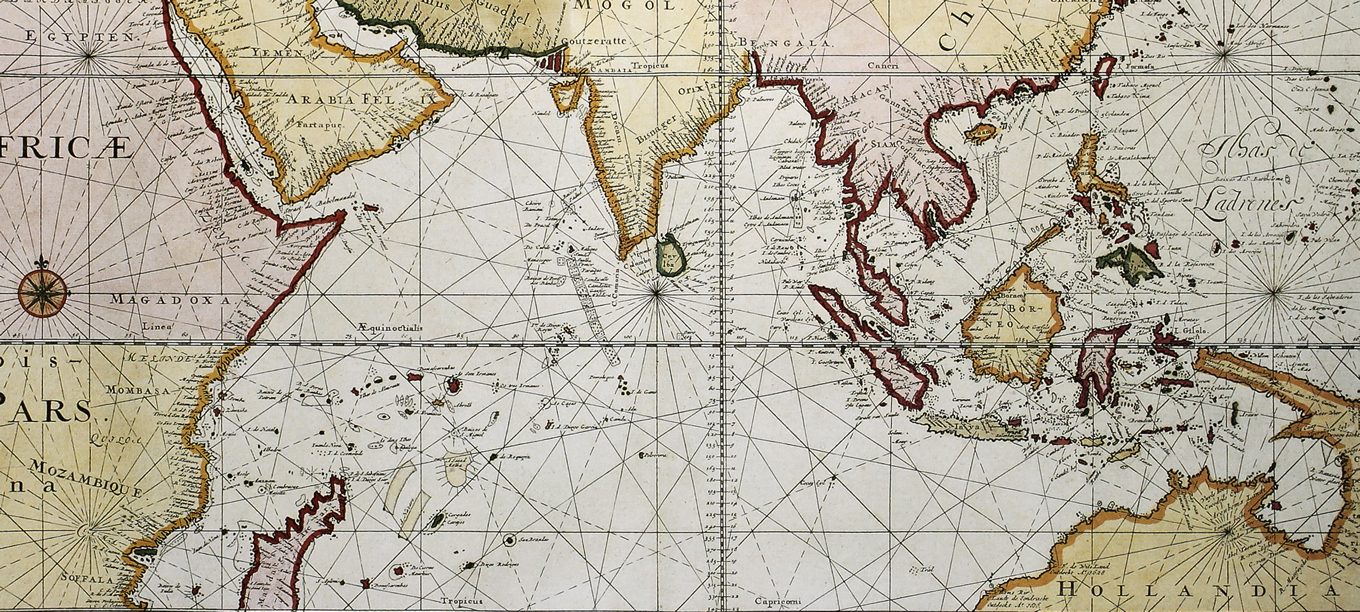
"Life can only be understood backwards; but it must be lived forwards."
- Søren Kierkegaard

- Søren Kierkegaard
This conference is intended as an inaugural conference in the collaboration among FIU in Miami CNRS- CEIAS in Paris and The World Federation of KSIMC in London. Its focus is to develop a rigorous transdisciplinary international programme of research on the history of the Khoja peoples through recherche scientifique on manuscripts, printed texts, oral traditions, and material culture. The preservation of multilingual materials in Sindhi, Kacchī, and Gujarati are important links that bridge the premodern- modern divide of Khōjā historiography. Coordinating ways to preserve these materials and make them available for academic research is a priority that necessitates international coordination and cooperation. This gathering will explore religious and social transformations that occurred as a result of migration and cosmopolitanism. It seeks to be inclusive of various modern academic interpretations of Khōjā identity and history in conversation with one another on the frames used in the interpretation of primary texts. Moreover, the Khōjā cannot be understood in isolation therefore research on related communities, such as the Lōhāṇā, Bohra and Memon, are particularly welcome as this helps to better contextualize what is sometimes a more insular Khōjā self-articulation of identity narratives.
Some of the questions posed by this conference include: What makes a religious text uniquely ‘Khōjā’ and how does has that identity evolved diachronically in various spacial contexts? How can the ginan (jñānō) corpus be categorized to reflect its interpolation over time, script changes, and space. How did the extinction of the Khōjā Sindhi script create a discontinuity that aided the development of modern Khōjā creedal Islamic identities? How does the tension between and ethnic Indic and Near Eastern Islamic identities manifest itself in the preservation of Khōjā heritage? How is communal religious authority constructed and contested transnationally?
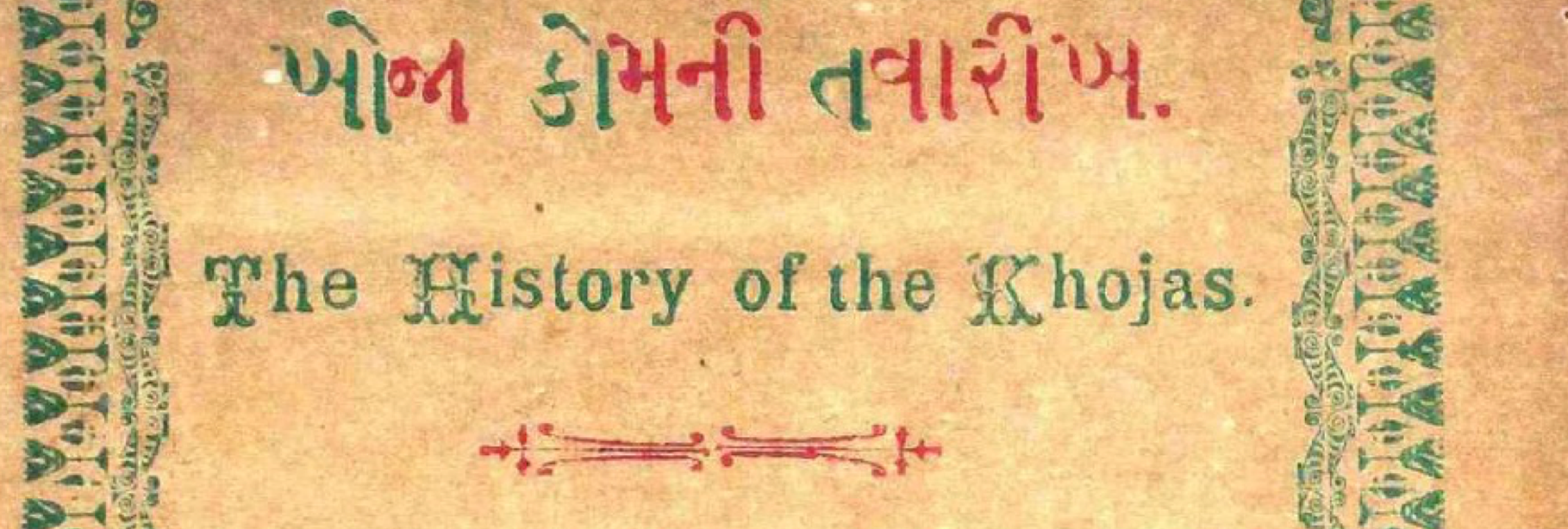
A two-day conference with a public keynote bringing together interdisciplinary Anglophone and Francophone scholars in the humanities, generally defined, to present and discuss the development of Khōjā identity over the past three centuries among transnational communities in South Asia, East Africa, Western Europe, and North America. The output of the conference will be two edited volumes.
Date: 15-16 December 2016
Venue:
Le Centre d'Études de l'Inde et de l'Asie du Sud (CEIAS)
Centre for Studies in India and South Asia
École des hautes études en sciences sociales (EHESS)
School for Advanced Studies in the Social Sciences
UMR8564 - CNRS / EHESS
190-198 avenue de France
75013 Paris
France
|
Thursday 15 December 2016 |
|
|
0700-0800 |
Breakfast at hotel |
|
0900-0930 |
Welcome addresses from organizers and homage to Françoise Mallison |
|
0930-1000 |
Keynote address: Michel Boivin, CEIAS, EHESS-CNRS |
|
|
Literature Panel chair: Zahir Bhalloo, CEIAS-EHESS |
|
1000-1020 |
Khōjā/Shamsi/Goan: The Impossibility of Otherness in M. G. Vassanji’s The Book of Secrets R. Benedito Ferrão, William & Mary |
|
1020-1040 |
A Peep into Waters Deep: The cartography of syncretic traditions espoused in Dasavatar of the Khojas, and in Nizari hymns Amit Ranjan, Florida International University |
|
1040-1100 |
History of the Khōjkī script Juan Bruce |
|
1100-1120 |
Discussion |
|
1120-1140 |
Coffee break |
|
|
Identity constructions Panel chair: Iqbal Akhtar, FIU |
|
1140-1200 |
Women as a Canvas of Our Communal Identity: Efforts Taken to Preserve Shia Ismaili Khoja Identity in British East Africa Alia Paroo, Texas A&M International University |
|
1200-1220 |
Divided in Death: Boundary Formations Through Control of Funerary Customs and Ritual Space in a Khoja Community Shiraz Hajiani, University of Chicago |
|
1220-1240 |
An Analytical Study of Ēdalajī Dhanajī Kābā’s (1880-1925) Polemical Discourse on the History of Khoja Kumail Rajani, University of Exeter |
|
1240-1300 |
Discussion |
|
1300-1400 |
Lunch |
|
|
The Bohra and Khōjā in comparative perspective Panel chairs: Denis Gay, Université de Lausanne and Kumail Rajani, University of Exeter |
|
1400-1420 |
To Arabia and Back; The Career and Collection of Bohra Scholar Muhammad Ali al-Hamdani Sumaiya Hamdani, George Mason University |
|
1420-1440 |
Historiography and Construction of Identity: The Ṭayyibī Ismāʿīlī/Bohra Experience between Yemen and India Samer Traboulsi, University of North Carolina- Asheville |
|
1440-1500 |
Discussion |
|
1500-1520 |
Coffee break |
|
|
Communal histories Panel chair: Kumail Rajani, University of Exeter |
|
1520-1540 |
Preserving but Redefining the Khoja ShiÕa Ithna-Asheri Muslim Identity Today: The Importance of the Mimbar, Madrasah & Family Sibtain Panjwani, |
|
1540- 1400 |
Religious Syncretism and Pluralistic Synthesis of the Indo-Islamic tradition in Gujarat - A Case Study of the Evolution of the Khoja Community Hasnain Walji, The World Federation |
|
1400-1620 |
Discussion |
|
1630 |
Board bus to dinner with the Khōjā centre of Paris & Muhamadi Imambara A.C.C.I.J (Paris South Jamaat): 48-50 Chemin lateral, 92220, Bagneux, France |
|
1930 |
Evening sightseeing trip |
|
Friday 16 December 2016 |
|
|
0800-0900 |
Breakfast at hotel |
|
|
The Subcontinent and the Indian Ocean Panel Chair: Michel Boivin EHESS-CEIAS |
|
1000-1020 |
Identity and Status: Kachchhi Khojas in Muscat and Zanzibar Chhaya Goswami, University of Exeter |
|
1020-1040 |
Lal Shahbāz Qalandar: An Ismāʿīlī Missionary in Sind Janis Esots, IIS |
|
1040-1100 |
Unveiling Ismaili Khoja Community in the 20th Century through the Travelogues of Pir Sabzali Qurratulain Nasiruddin, IIS |
|
1100-1120 |
Discussion |
|
1120-1140 |
Coffee break |
|
|
Ginans Panel Chair: Iqbal Surani, FIU |
|
1140-1200 |
The Ginan library Pyarali Jiwa |
|
1200-1220 |
Songs of Survival: Islam, Music and Identity in South Asian Community Karim Gillani, University of Alberta |
|
1220-1240 |
Indo-Ismāʿīlī Cosmogony: A Text-Critical Study Ali S. Samji, Independent Scholar |
|
1240-1300 |
The Devotional Poetry by Saint Kabir and ‘BrahmaPrakash’ authored by Peer Shams: A Comparative Study in the Socio‐Cultural Context Urvashi Manuprasad Pandya, University of Mumbai |
|
1300-1320 |
Discussion |
|
1320-1420 |
Lunch break |
|
|
Adapting modernity Panel chair: Hasnain Walji, The World Federation |
|
1420-1440 |
Culturally Islamic, Islamically Cultural: ethnographic observations of a Twelver Shia Khoja community Abbas Aghdassi, Tehran University |
|
1440-1500 |
Multiple Differentiations: Distinctions between the Religious and the Secular in Different Ismaili Communities Mohamed Magout, University of Leipzig |
|
1500-1520 |
The Birth of New Khoja Traditions in Modernity Shumaila Hemani, University of Alberta |
|
1520-1540 |
Discussion |
|
1540-1600 |
Break |
|
1600-1630 |
Discussion and conference planning for next biennial meeting |
|
1630-1645 |
Vote of Thanks to the participants and organizers |
|
1700 |
Bus to dinner at restaurant for conference participants |
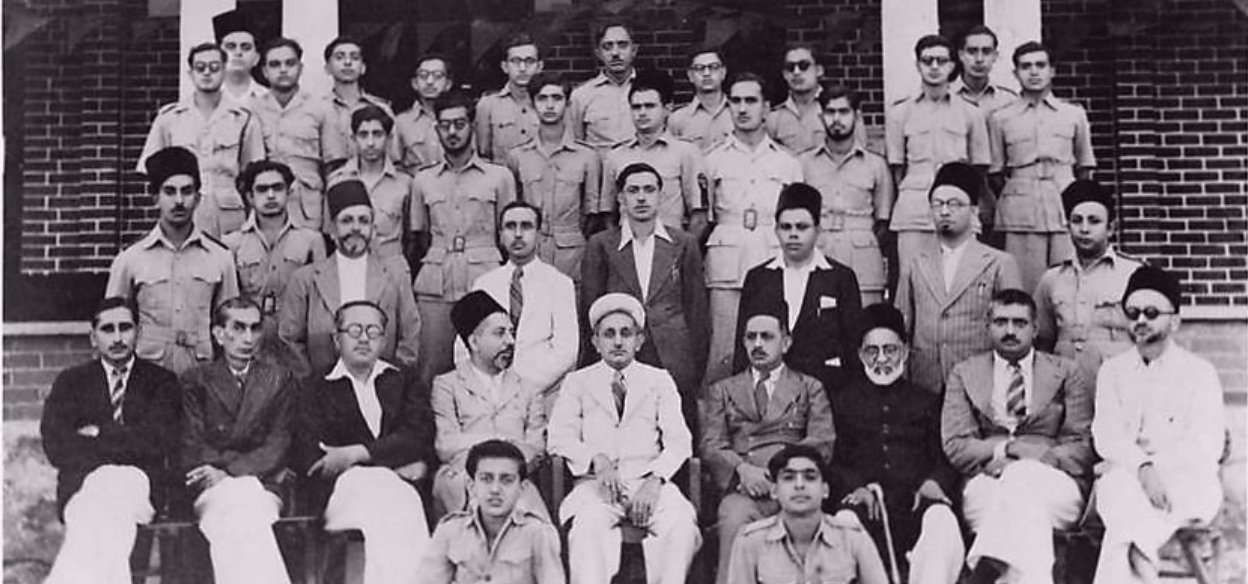
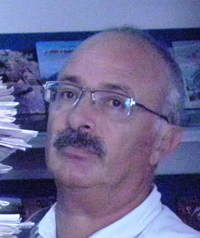
Michel Boivin is Senior Research Fellow at the Centre for South Asian Studies and he teaches Historical Anthropology of Muslim Societies in Colonial and Postcolonial South Asia at the School of Advanced Studies in Social Sciences (EHESS, Paris). He also supervises a number of master and PhD students, at EHESS as well as at the University of Karachi where he is external examiner for PhD. In 2011, he has founded the Centre for Social Sciences in Karachi (CSSK), a French NGO whose aim is to foster the studies in Social Sciences related to Pakistan and South Asia.
Michel Boivin works on the construction on modern knowledge in the context of colonial and postcolonial South Asia, through the emergene of new social classes. Focussing on the Sindhicate area, he scrutinizes how the vernacular was constructed both in Muslim and Hindu societies before and after partition, in Pakistan as well as in India. He has authored about one hundred academic papers, and he has edited and published twelve books. The last one published in French is title Pakistan: Anthropology of an Islamic Republic (Téraèdre, Paris, 2015). In English, he has recently published Historical Dictionary of the Sufi Culture of Sindh in Pakistan and in India (Karachi, OUP, 2015).
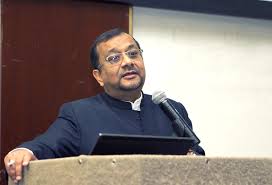
Dr. Hasnain Walji is a Co-Chair of the Khoja Heritage Project of The World Federation of KSIMC. He is an educator, historian, author, and an interfaith activist.
As a dedicated oral historian, for the past 30 years he has been researching and documenting the socio-religious history and evolution of the Khoja Shia IthnaAsheri Community. This has culminated in the production of a a groundbreaking anthropological documentary “The Khojas – A Journey of Faith” that spans the past 600 years of the Community's history. Hasnain has also served as Secretary General, Vice-President and as President of The World Federation of KSIMC and is the founding director of the Mulla Asghar Memorial Library and Resource Center in Toronto which houses a rare collection of over 100 manuscripts on the history of the Khojas in Gujarati and Khojki. He has authored 26 books on naturopathic medicine that have been translated from English to Chinese and other European languages. He has travelled the world in pursuit of his passion for increasing interfaith understanding in a quest to make this world a better place for his six grandchildren.

Dr. Iqbal Akhtar is an assistant professor with a dual appointment in the departments of Religious Studies and Politics & International Relations in the Steven J. Green School of International and Public Affairs (Florida International University). He completed his doctorate at the University of Edinburgh’s New College School of Divinity. His current work explores the origin of the Khōjā peoples in the Subcontinent through extant oral traditions known as the kahaṇī in Sindhi, Gujarati, and Hindustani.
He teaches both undergraduate and graduate courses as well as independent studies which include but are not limited to: Islamic Political Thought, Advanced Interpretations of the Quran, Voice of the Prophet, Islamic Faith and Society, Women in Islam, and Islamic Mysticism (Sufism). He is the research director of the Western Indian Ocean Studies programme.
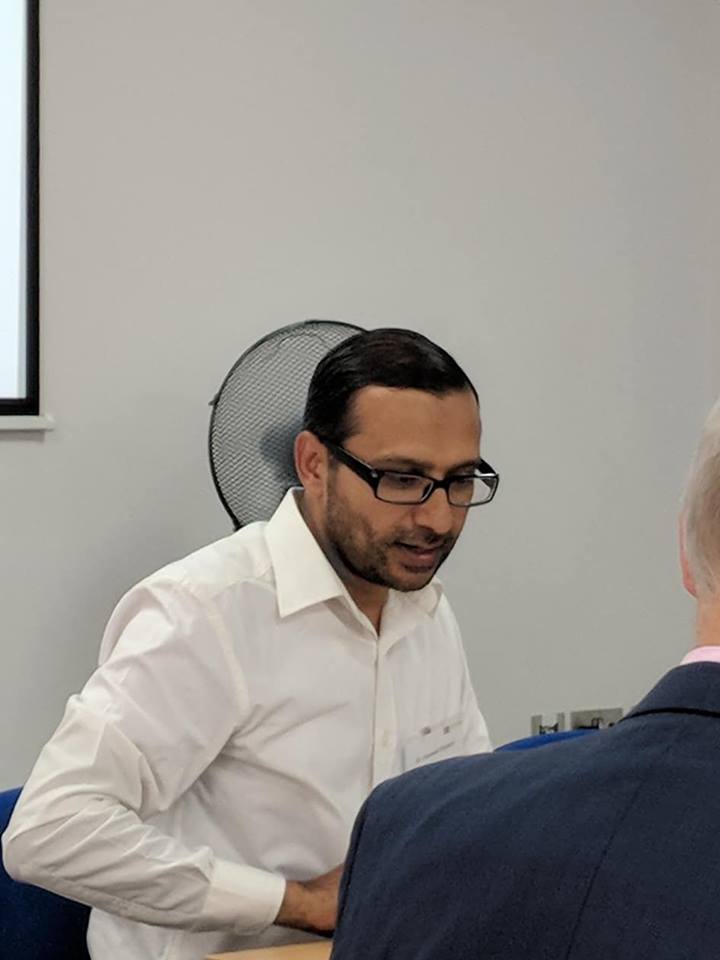
Kumail Rajani is a Postdoctoral Research Fellow in Islamic Studies at the Institute of Arab and Islamic Studies, University of Exeter. He works on the Law, Authority and Learning in Shiite Islam project, an advanced award (no. 695245) funded by European Research Council. Though primarily focused on the origins and development of hadith corpora, his research includes Islamic law, legal theory, and Shiʿi studies more broadly. He recently published an article entitled “Between Qum and Qayrawān: Unearthing early Shii ḥadīth sources” (BSOAS 84/3, 2021). He also edited The Sound Traditions: Studies in Ismaili Texts and Thought (Brill, 2021) and co-edited Shiʿite Legal Theory: Sources and Commentaries (forthcoming, 2022). He is currently working on converting his PhD (Making Sense of Ismaili Traditions: The Modes and Meanings of the Transmission of Ḥadīth in the Works of al-Qāḍī al-Nuʿmān (d. 363/974), Exeter) into a monograph, among other pursuits. Rajani spent a number of years in Shiʿite seminary (Ḥawza) of Qum studying and teaching classical Islamic texts of ḥadīth, fiqh and Islamic legal theory. Rajani is the recipient of Post Doctoral Writing Fellowship from British Institute for Libyan and Northern African Studies for one year (2022) as well as British Academy Postdoctoral Fellowship for 3 years (2023-2025).
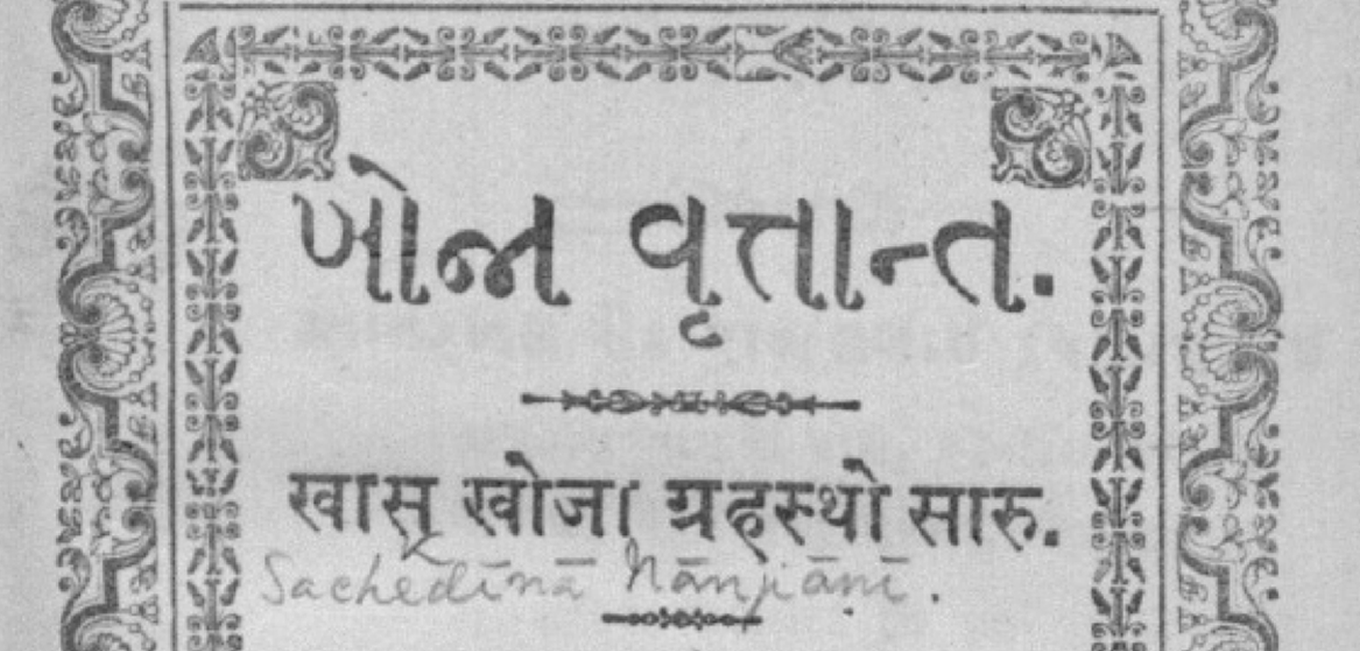

The World Federation was established in 1976. Its aim was to unify the disparate communities of the Khoja Shia Ithna Asheri community throughout the world under its umbrella. The World Federation recognised the needs and growth of the newly-settled Khoja Shia communities in the West, namely in the UK, Europe, USA, Canada, Dubai, and Australasia. The World Federation attends to the community’s financial, spiritual, and educational needs, and passionately follows its motto: ‘We exist to serve’. It is a registered charity in the UK, and is world renowned for its efficient and well-organised humanitarian and religious contribution to people throughout the world.
The World Federation of KSIMC works in the areas of International Relief & Development, Islamic Education, and Community Affairs, the last of which includes the Khoja Heritage Project.

The Department of Politics and International Relations at Florida International University combines traditional disciplinary strengths in political science with a multi-disciplinary approach to the study of international relations. The Department offers Bachelor of Arts degrees in political science and international relations, the Masters of Arts degree in international studies, and the Doctor of Philosophy in political science and international relations. Students can also pursue several combined degrees at the undergraduate or graduate level.
Faculty and graduate students conduct research that spans a number of geographic regions including North America, Latin America, Europe, the Middle East, Sub-Saharan Africa, Central Asia, and East Asia. Thematically, the Department offers courses in the five traditional political science subfields of American politics, comparative politics, international politics, and political theory. Faculty and students also carry out research that transcends traditional boundaries.

The EHESS is made up of over 47 research centres, 37 of which are shared with the Centre national de la recherche scientifique. It nevertheless does not constitute a research institute in the conventional sense of the word. Life at the school is centered on research training in which students work alongside experienced researchers, a perspective from which they gain privileged access to the mechanics of research in progress. The school can boast of an unparalleled range of research seminars, programs and publications, all of which embrace an interdisciplinary and multidimensional approach. It accordingly places a particular emphasis on area studies and it is a key aspect of school policy to actively promote conversation between the social sciences and other sciences, in particular the life sciences, as well as the arts.
Life at the EHESS is driven by its 300 plus tutor-researchers and 500 pure researchers based in its multiple research centres, in collaboration with over 450 technical support staff and 3000 enrolled students, and is supported by a consolidated budget of 40 million euro. The school also places great emphasis on its international agenda, maintaining links with a vast constellation of universities around the globe. It invites each year 150 foreign teachers to enrich its research activities and approximately one half of its students come from outside of France. The resources it offers to those pursuing doctoral and post-doctoral studies, as well as the number of publishing researchers based at the school, mark it out as a key hub for research in the social sciences in Europe.

To attend the conference, please register for a ticket at: http://lnk.wf/KHOJASTUDIES